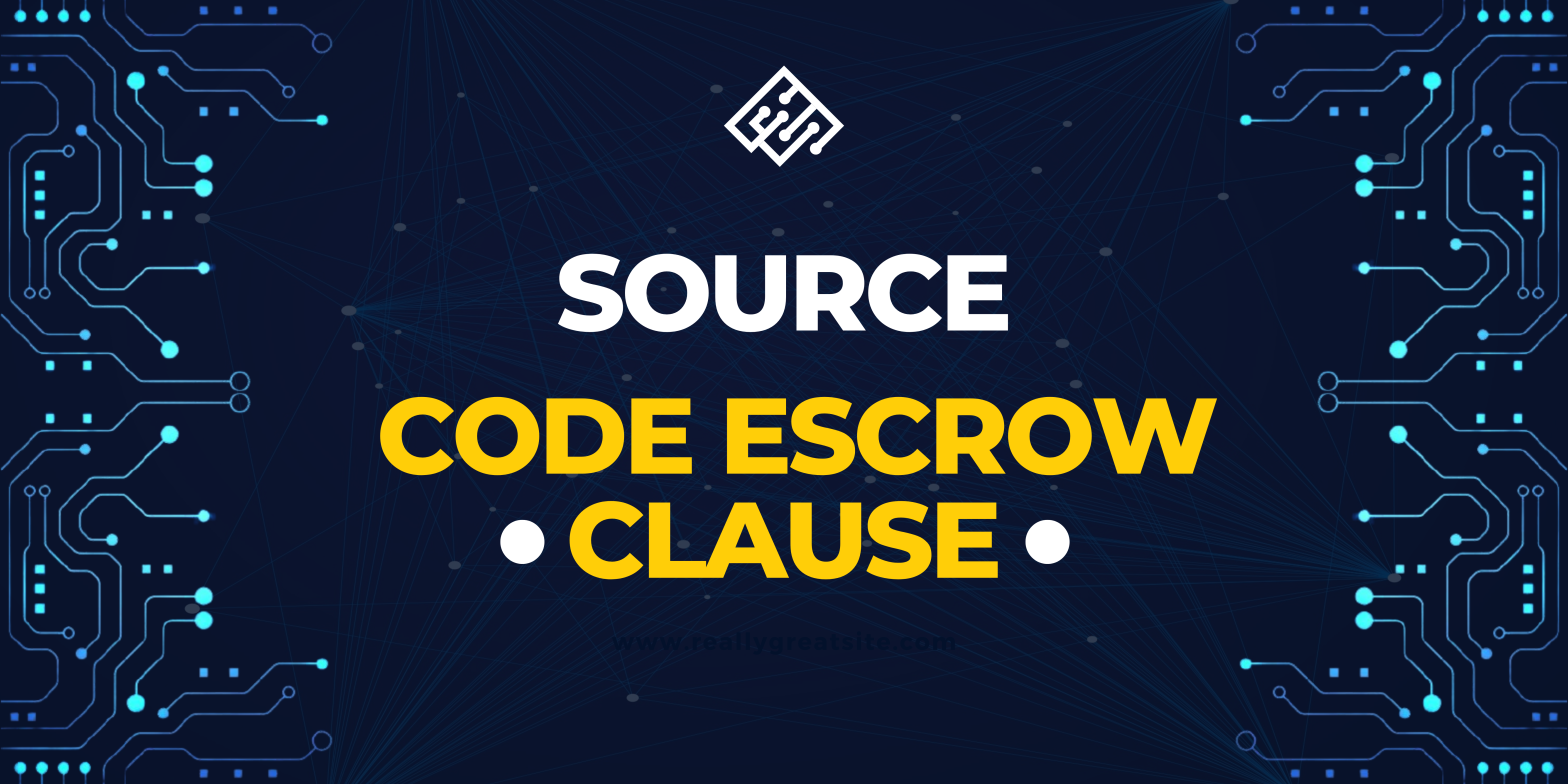In the world of software development, a source code escrow clause is a contractual agreement between a software developer and their client. The purpose of this agreement is to ensure that the client can access the source code of the software in the event of the developer’s bankruptcy, merger, or acquisition, or if the developer fails to meet certain obligations outlined in the agreement.
A source code escrow clause can be an essential component of any software development project, providing both parties with an added layer of protection. In this article, we will explore the ins and outs of the source code escrow clause, including what it is, why it’s important, and how it works. We will also provide an example of a source code escrow clause to help illustrate its key components.
What is a Source Code Escrow Clause?
A source code escrow clause is a contractual provision that requires the software developer to deposit the source code of the software with a neutral third-party escrow agent. The escrow agent holds the source code in trust until certain predetermined events take place, such as bankruptcy, merger, or acquisition of the software developer.
The source code is the underlying set of instructions that the computer reads and interprets to execute the software. It is the intellectual property of the software developer and is often closely guarded. However, in certain circumstances, it may be necessary for the client to access the source code to maintain or modify the software.

Why is a Source Code Escrow Clause Important?
A source code escrow clause is important because it provides the client with a safety net in the event of the software developer’s bankruptcy, merger, or acquisition. In these situations, the developer may no longer be able to provide support for the software, leaving the client with no access to the source code or means to maintain or modify the software.
By requiring the developer to deposit the source code with an escrow agent, the client can be assured that they will have access to the source code if certain predetermined events occur. This can be especially important for clients who rely heavily on the software to operate their business or who have invested significant time and resources in the development of the software.
Source Code Escrow Clause ensures protection in software contracts, safeguarding the client’s interests. With a software escrow, the source code is held by a neutral third party.
Source code escrow companies provide secure storage of software source code, ensuring protection for both developers and clients. They safeguard intellectual property, facilitate license compliance, and provide access to the code when specific agreed-upon events occur.

How Does a Source Code Escrow Clause Work?
A source code escrow clause typically includes the following key components:
- Parties: The parties to the agreement are identified, including the software developer, the client, and the escrow agent.
- Escrow deposit: The software developer is required to deposit the source code with the escrow agent.
- Release events: The events that trigger the release of the source code are identified, such as the bankruptcy, merger, or acquisition of the software developer.
- Release conditions: The conditions that must be met for the source code to be released are identified, such as the failure of the software developer to provide support or updates.
- Access provisions: The client’s right to access the source code is outlined, including the process for requesting access and any fees that may be associated with access.
- Confidentiality provisions: The confidentiality of the source code is protected, and the client is typically required to sign a nondisclosure agreement before accessing the source code.
- Termination provisions: The circumstances under which the agreement may be terminated are identified, including the return of the source code to the software developer.
Source Code Escrow Clause Example
Here is an example of a source code escrow clause:
“The software developer agrees to deposit the source code of the software with a neutral third-party escrow agent. The escrow agent will hold the source code in trust until the occurrence of any of the following events:
- The software developer becomes bankrupt or insolvent
- The software developer is acquired by another company
- The software developer merges with another company
- The software developer fails to provide support or updates for the software for a period of six months.
If any of the events listed occur, the client can access the source code held by the escrow agent by providing written notice and paying any associated fees. They must sign a nondisclosure agreement and use the code only for maintenance or modification. The software developer must ensure the code is complete and up-to-date and inform the agent of any updates. Either party can terminate the agreement with 30 days written notice, and the agent will return the source code to the developer.
Conclusion
A source code escrow clause can be an important tool for both software developers and their clients. By requiring the developer to deposit the source code with a neutral third-party software escrow agent, the client can be assured that they will have access to the source code in the event of the developer’s bankruptcy, merger, or acquisition, or if the developer fails to meet certain obligations outlined in the agreement.
It is important for both parties to carefully consider the terms of the source code escrow clause and to ensure that the escrow agreement is tailored to the specific needs of their software development project. In addition, it is important to work with an experienced attorney to draft the agreement and to ensure that all legal requirements are met.
Ready to protect your software development project? Consult with an experienced attorney to draft a tailored source code escrow clause today.
